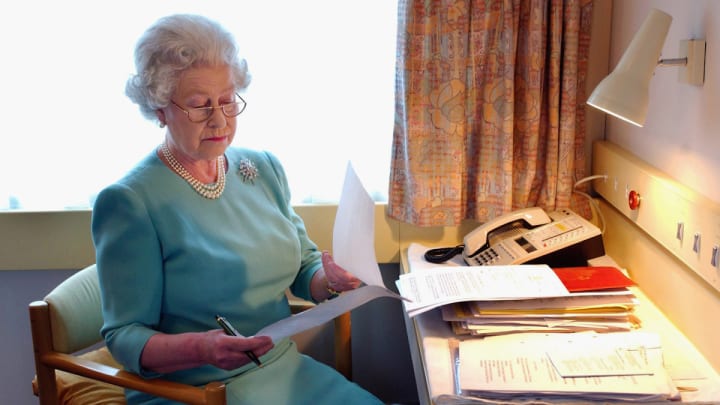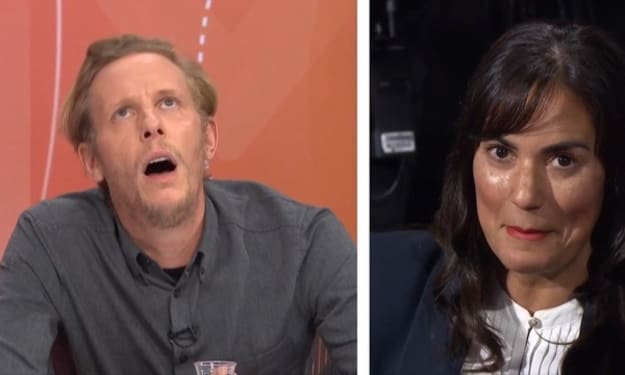Realist or Royalist?
Questions about myself that I've been considering with the recent royal news

The recent turmoil and tragedy facing the British Royal family has caused me to reflect on what my opinion of them as an institution really is. And it has caused me to question and consider the truth about a lot of my deeply held beliefs.
I think a good place to start is to just be honest about my gut reactions to the events of the last year in what, as the memes keep reminding us, will make a gripping series of 'The Crown' at some point in the future. I think these gut reactions were annoyance at the revelation of Prince Andrew's behaviour, a different kind of annoyance at the departure of Harry and Meghan and their subsequent actions, and I'll admit a little sadness when I learnt of the passing of the Duke of Edinburgh. I've always described myself as a royalist, but am quick to point out that it is in a pragmatic sense. I tell people that I believe that the royal family is a more financially suitable setup for the country, and illustrate my position by explaining, for example, that I support the royals but have no interest in watching, for example, a royal wedding. I try to distance myself from people like my dad, who proudly like to announce to everyone that they support the Queen through and through, yet when you ask them why, they can't give you a reasonable answer, just a look of disgust that you would question their loyalty. I enjoyed mocking him when he made a little euology for Philip on social media but spelt his name wrong, where as most of the statuses critisising the Duke spelt it right. But maybe, as is often the case, I am a little bit in denial about the similarities I have with my dad.

I think this is clear with regards to my gut reactions. When Prince Andrew was linked to Jeffrey Epstein, I was not jumping up for joy and mocking the posh bastards and their scrounging ways, I was annoyed that he had brought shame on the crown. And, I will admit that my annoyance at the "Megxit" affair was always aimed at the couple and the lack of respect or duty they showed. This is, of course, a grossly unfair conclusion. But I won't deny my gut reactions. They were, I think, based on the same pragmatic idea. Because that approach takes into account that in order to be reliable as a source of national income, the royal family need themselves be reliable, and committed to public duty and decency. And the House of Windsor has a history of sometimes struggling with this. I have no idea of the reliability of the quotation, but there is a scene in 'The Crown' where Prince Philip says that royal private secretary Tommy Lascelles once drunkenly told him that he believed the House of Windsor was a metaphorical polycephalus, a mythological two headed creature, and that there have always been 'dazzling Windsors and dull ones.' For every Victoria, there's an Edward VII, for every George V, a Prince Eddy, for every George VI, an Edward VIII, and in this instance I believe he was referring to wild child Princess Margaret being the opposite to her sister, the current Queen. For every royal that remains committed to public duty and servitude, there will be a wild one who cannot commit to the life. And perhaps, essentially, the continuation of this curse exists in Prince Andrew and latterly Prince Harry.

But what does that say about me? Am I criticising these people, who are human at the end of the day, making human errors and having normal struggles with their mental health? I'd like to think not, because I've never had time for the treatment the royal family have received from the press in this country, and that extends to the treatment of Meghan Markle. And, to be honest, it extends to the way Prince Harry has always been treated by the press, and his mother before him. I guess that just, by taking the pragmatic perspective of a royalist, I find it disheartening to see these instances that make life difficult for the dutiful and 'dull' Winsdors like her majesty. Perhaps it's because I'm a little dull myself. And, quite honestly, many of the truly awful revelations about Prince Andrew and someone like Edward VIII, are not comparable on a moral level to the actions of Harry and Meghan, who at the end of the day only want what is best for their child, however questionable the nature of their methods may be deemed by some.

So, I had mixed thoughts on the matter. I couldn't quite decide how I felt about it and what it said about me. But the death of Prince Philip, I think, caused me to realise something about myself that I'd never really fully confronted. I felt a bit of a connection to the national feeling of loss. Like the end of an era. Here, at the end of the day, was a man who, flawed no doubt, dedicated his entire life to duty and to his wife. And that is just something I cannot help but respect and admire. And that woman, Elizabeth II, is the epitome of that unwavering sense of duty to her country and the crown. I've always been quick to defend her against offhand comments like "'bout time she did a day's work" or "we pay for her to live that lavish lifestyle." Quite frankly, is that a lifestyle you would really want? Constantly in the public eye, everything you do scrutinised? And if it isn't too hard for you to understand, this is not something she chose for herself. Such is the burden that is a crown. My respect for the Queen and my extreme readiness to defend her, I think, makes me realise that I am a bit more like my dad in my royalist sensibilities, rather than the realistic approach I like to think that I take.

But perhaps there's something to say about that. There's more than one reason other countries in the West are fascinated by the British monarchy. For we have in this country a system where by it is somebody's sole purpose in life to uphold decency and morality and duty, and I think it's fair to say most British Prime Ministers when they sit down next to the Queen feel humbled and their sense of moral public duty increased. It may be a sweeping statement. Nobody is really born into any kind of divine power, whoever they are, nobody is an immaculate conception morally, and, perhaps most glaringly the case, not all British Prime Ministers have a very clear moral sense of public duty! But, nonetheless, I think it is true, and I think it does play an integral part in who we are as a nation, and when it works, with somebody like Elizabeth II, it really works. And people like the late Duke and herself have wrought very hard to protect something that is valuable and important and at great personal sacrifice.
But the Queen's mortality has become all the more apparent recently, and with the family in turmoil, who knows what the future holds? Prince William seems to fit the profile of a good King, and forgive me for skipping his father Prince Charles, a man I've met and, while not without his flaws, understands the same sense of duty. But who knows what might happen; one day a "wild child of Windsor" may end up on the throne. And it won't be difficult then for republicans to argue that we finally abolish the monarchy. It may even be in my lifetime. And I can't pretend that I won't feel a great sense of loss of something that, when it worked, was such an important part of this nation and this country. Food for thought.
As I write this, the Queen celebrates her 95th birthday. I wish her a healthy and happy one and many more to come.
About the Creator
Matty Long
Jack of all trades, master of watching movies. Also particularly fond of tea, pizza, country music, watching football, and travelling.
X: @eardstapa_






Comments
There are no comments for this story
Be the first to respond and start the conversation.